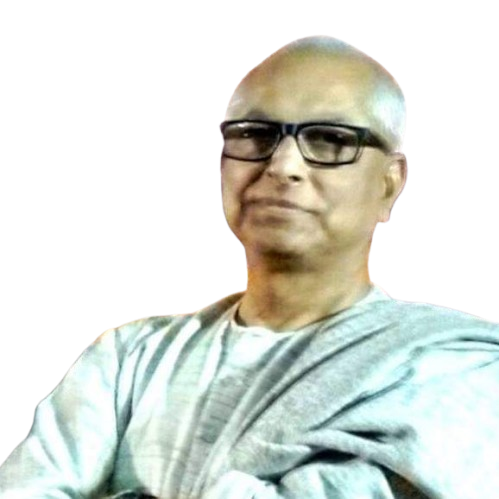The contrasting example of France underscores India’s failure to balance secularism with cultural preservation

Dr. Viswanath Pandey
India’s secularism, much like the land it governs, is paradoxical. It professes equality among religions but operates with the unequal precision of a colonial hangover. Hindu temples, in particular, find themselves enmeshed in a unique bind—both symbol and casualty of a peculiar interpretation of secular governance. Their fate, regulated by the state to a degree unmatched by other religious institutions, is emblematic of a broader imbalance that undermines both cultural preservation and constitutional equity.
Across the globe, a different secular principle plays out. France, a nation where religion and state are famously separate, reopened Notre Dame Cathedral after a painstaking restoration following its 2019 fire. The effort, costing over €700 million, was largely funded by the state and public donations—not as an act of faith but as one of heritage. In India, however, the state’s relationship with Hindu temples is not one of reverence or preservation but of regulation and, often, exploitation.
Legacy of Unequal Secularism
To understand the present, one must journey into the past. During British rule, the Madras Religious and Charitable Endowments Act, 1925, was introduced ostensibly to regulate all religious institutions. Yet, the British swiftly amended it to exclude Christian and Islamic institutions after protests, leaving only Hindu temples under state oversight. This selective interference weakened Hindu institutions, curtailing their influence on society while consolidating colonial power. Post-independence, this framework evolved but retained its essential inequity.
Today, state laws like the Tamil Nadu Hindu Religious and Charitable Endowments (TNHRCE) Act, 1959, continue this legacy, placing Hindu temples under government control. By contrast, Sikh Gurdwaras and Islamic Wakfs enjoy autonomy under the Sikh Gurdwara Act, 1925, and the Wakf Act, 1995. This disparity in governance is not merely bureaucratic; it reflects a deeper, systemic bias.
The governance of Hindu temples differs starkly from that of other religious institutions:
The Sikh Gurdwara Act and the Wakf Act empower community-led boards to manage their institutions. Hindu temples, however, are administered by state-appointed officials, alienating them from their local communities. This lack of representation often results in decisions that prioritize state interests over religious or cultural concerns.
Hindu temples generate substantial revenue from donations and offerings. Yet, under state control, much of this income is diverted to government accounts for secular purposes, such as infrastructure projects. This raises constitutional and ethical questions about the appropriation of religious funds. By contrast, Gurdwaras and Wakfs retain control over their finances, using them for community welfare and religious activities.
State authorities can assume control of Hindu temples under vague accusations of “mismanagement,” often without community consent or clear criteria. These takeovers can last indefinitely, eroding transparency and accountability. Conversely, the Wakf Act limits state interference to specific cases of proven mismanagement, capped at five years.
While Gurdwaras and Wakfs enjoy legal safeguards for their properties, the TNHRCE Act permits state authorities to sell or repurpose temple lands, often without adequate compensation or consultation with the temple community.
The Paradox of Heritage and Secularism
The contrasting example of France underscores India’s failure to balance secularism with cultural preservation. France’s secularism, laïcité, strictly separates church and state yet allows for the protection of religious structures as part of national heritage. In restoring Notre Dame, France demonstrated that secularism need not mean indifference to religious culture. India, however, employs secularism as a tool for uneven governance, where the autonomy of some religions coexists with the state’s paternalistic control over others.
This paradox reveals the flawed premise of Indian secularism: rather than ensuring equal treatment, it often distorts the principle into unequal application. For Hindu temples, this has meant state control without the benefits of state preservation.
| To correct this imbalance, India must redefine its approach to secularism, aligning it with both constitutional values and the realities of a pluralistic society: Enact laws granting Hindu temples the same autonomy as Gurdwaras and Wakfs. Community-elected boards, not state-appointed officials, should manage temple affairs. Ensure that temple revenues are used exclusively for religious and community purposes, with transparent mechanisms to prevent misuse. Recognize Hindu temples as heritage sites deserving state support for maintenance and restoration, much like Notre Dame. Restrict state intervention to exceptional cases of proven mismanagement, with clear guidelines and time limits. Foster greater participation of local communities in temple administration, ensuring decisions reflect their values and traditions. |
India’s current approach to Hindu temples is a vestige of colonial policy, perpetuating inequality under the guise of regulation. True secularism demands fairness, not favoritism; it requires the state to protect all religions equally while respecting their autonomy.
The restoration of Notre Dame serves as a reminder that secularism and cultural preservation can coexist. India, a land of unparalleled religious and cultural diversity, must aspire to a model that treats all faiths with equal respect. By granting Hindu temples autonomy and ensuring equitable governance for all religious institutions, India can uphold its constitutional commitment to justice and fairness.
In doing so, the nation will not only honor its pluralistic heritage but also reaffirm its promise of secularism—not as an imposition, but as a principle of true equality.
(The author, former PRO of BHU, is renowned globally for his research book on Mahamana Madan Mohan Malaviya’s legacy).


